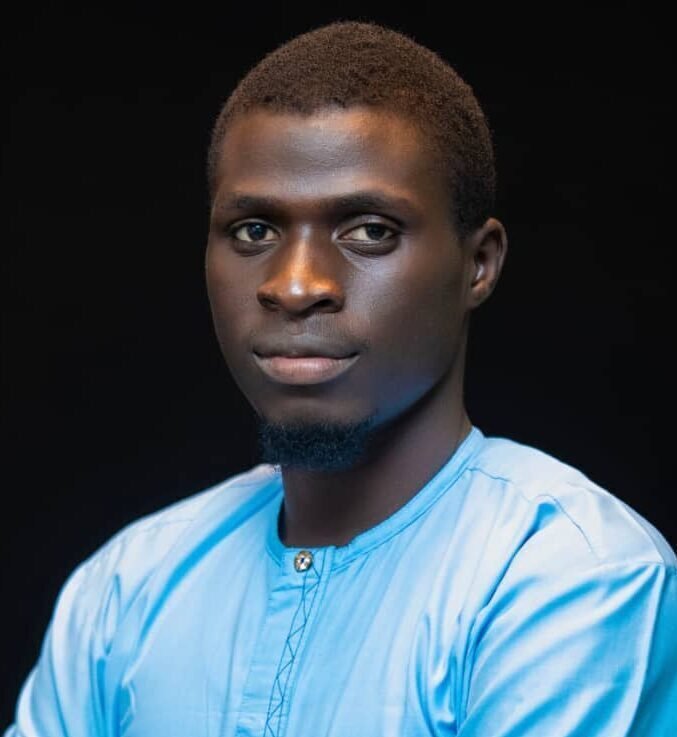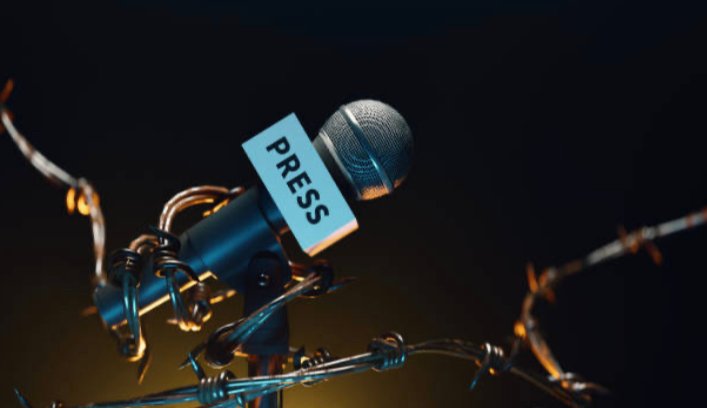As 2024 comes to a close, The Liberalist reflects on the major attacks that threatened press freedom in Africa. Eritrea leads as the most repressed country in the continent and in the world, and democratic nations like Nigeria and Kenya got labelled as hotspots for journalist harassment.
In May, the Intelligence Response Team (IRT) of the Nigerian Inspector General of Police abducted Daniel Ojukwu, a journalist with the Foundation for Investigative Journalism (FIJ). Before his relocation to the Nigeria Police Force National Cybercrime Centre (NPF-NCCC) in Abuja, the intelligence team held Ojukwu at the State Criminal Investigation Department (SCID).
His whereabouts remained unknown until Friday, 3rd May, when his family learned of his detention at Panti area in Lagos. The day also coincides with the commemoration of World Press Freedom, meaning that when Nigerian journalists joined the rest of the world in advocating press freedom on that day, Ojukwu was wallowing in police detention.
For ten days, the security operatives denied Ojukwu access to legal representation and continued to remain silent on his arrest.
This pattern of arrest violated section 36 subsection 6 of the Nigerian constitution, which guarantees the right to be informed of charges in a language understood and to defend oneself personally or through a chosen legal practitioner.
Nigeria’s blatant disregard for press freedom has made it one of West Africa’s most dangerous and difficult countries for journalists, the latest data on the 2024 World Press Freedom Index by Reporters Without Borders (RSF), a non-profit global organisation, reveals. The report ranked Nigeria 112th out of 180 countries due to journalists being constantly harassed, attacked, and arbitrarily abducted.
In August, during the last #EndBadGovernance protest that spanned 10 days from August 1st, security operatives reportedly assaulted and harassed at least 56 journalists. This alarming trend underscores the growing threat to press freedom in the country.
Despite Nigerian President Bola Tinubu’s pledge to safeguard media freedom, there were 128 recorded incidents of press freedom violations in 2024 alone, according to Press Attack Tracker (PAT), a project of the Centre for Journalism and Innovation Development that tracks, verifies and documents cases of press freedom violations in Nigeria.
The alarming surge in journalists’ arrests and abductions in Nigeria not only underscores a disturbing decline in press freedom but also casts a dark shadow over the future of journalism in the country. A more insidious consequence of this trend is the palpable fear that now grips aspiring journalists, leaving them uncertain about pursuing a career in journalism.
Like Daniel Ojukwu, Segun Olatunji, FirstNews editor also suffered the same fate. In March, soldiers, numbering about 10, abducted the Editor of First News and former Kaduna Bureau Chief of The PUNCH, Segun Olatunji at his home in the Iyana Odo, Abule Egba area of Lagos State.
The mystery surrounding his disappearance persisted, with his family knowing nothing of his whereabouts. However, the International Press Institute (IPI), a global network of media professionals defending media freedom and promoting independent journalism, shed light on the situation. IPI revealed that the Defence Intelligence Agency was responsible for the editor’s abduction. In a stunning turn of events, mere hours after the IPI exposed this information, the Nigerian military astonishingly acknowledged that they had taken the journalist into custody.
After 12 days of denial, the Minister of Information, Mohammed Idris, finally admitted that the military was responsible for detaining the editor, citing top military officers. Although the military released Mr. Olatunji after 13 days of unlawful detention, his ordeal is a disturbing example of the Nigerian armed forces’ growing trend of targeting journalists.
According to a report by Media Right Agenda (MRA), a non-profit organisation advocating for media freedom and digital rights, between January 1 and October 31, law enforcement and security agencies were responsible for 45 out of 69 reported attacks on journalists, accounting for approximately 65 percent of the total incidents.
Senegal and Kenya
The aftermath of the postponed presidential election in Senegal is a serious media crackdown, following protests in several areas of the country.
In February, security operatives assaulted Sokhna Ndack Mbacké from Agora TV and Khadija Ndate Diouf from ITV while covering protests in Dakar, Senegal’s capital. The forces verbally abused the two journalists, seized their equipment, and threatened them with imprisonment. They were eventually arrested but released without charges after a brief detention.
Also, gendarmerie officers brutally harassed Hadiya Talla, the editor-in-chief of La Vallée Info, and Clément Bonnerot, a TV5 Monde correspondent while covering the same protests in Dakar. Bonnerot had a particularly harrowing experience, with tear gas canisters thrown in his direction as he filmed security forces.
The atmosphere is not different in Kenya. On February 8, police officers assaulted and arrested three journalists— Musembi Nzengu of The Star newspaper, Ida Ngile of Mumo TV, and Mercy Mueni of Mbaitu FM Radio—while reporting on a contentious event in Kitui County, the eastern part of the country.
In 2024, “a growing number of governments and political authorities are not fulfilling their role as guarantors of the best possible environment for journalism and for the public’s right to reliable, independent, and diverse news and information,” Anne Bocandé, RSF editorial director noted. Reporters Without Borders sees “a worrying decline in support and respect for media autonomy and an increase in pressure from the state or other political actors.”














